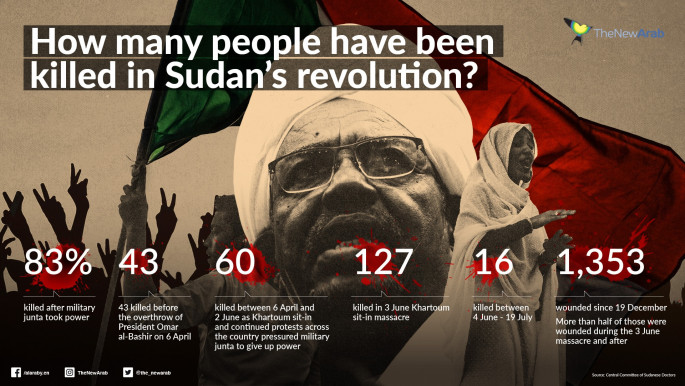New round of Sudan peace talks in Juba postponed
The talks were due to begin on Thursday but Khartoum has agreed to push them back to December 10 at the request of Juba, which is mediating the negotiations, Sudan's ruling sovereign council said in a statement.
"The government is looking forward to resume the negotiations on the new date," Mohamed al-Taayushi, a member of the sovereign council, said in the statement.
Peace talks opened last month between Khartoum's new transitional government and rebels who fought now-ousted president Omar al-Bashir's forces in Darfur, Blue Nile and South Kordofan.
Sudan's new transitional authorities, tasked with leading the way to civilian rule after the ouster of Bashir, have vowed to bring peace to these conflict zones.
At the first round in October, Khartoum agreed to allow humanitarian relief into the three war-torn states, where years of conflict have left hundreds of thousands dead and millions displaced.
The conflict in the western region of Darfur erupted in 2003 when ethnic African rebels took up arms against Bashir's Arab-dominated government, accusing it of marginalising the region economically and politically.
Similar conflicts also erupted in South Kordofan and Blue Nile during the secession of Sudan's south from the north in 2011.
"The chances of achieving comprehensive peace in the country have grown" since the revolution, Taayushi said.
"This paves the way for turning the page of war and realising the desired change to full democratic transformation and sustainable development."
During the two weeks of talks last month, Khartoum announced a "permanent ceasefire" in the three conflict zones.
An unofficial ceasefire had been in place since Bashir was ousted by the army in April in a palace coup that followed nationwide protests against his decades-old rule.
Sudan is currently ruled by an 11-member joint civilian-military sovereign council, tasked with overseeing the transition to civilian rule as demanded by protesters.
 |
Graft trial
Meanwhile, the verdict in the corruption trial of Sudan's ousted president is to be delivered on December 14, a judge announced on Saturday, as his supporters staged a protest outside the court.
Bashir, who was overthrown by the army in April, has been on trial in a Khartoum court since August on charges of illegally acquiring and using foreign funds - offences that could land him behind bars for more than a decade.
Several hearings have been held, including one on Saturday, in the presence of the deposed leader who followed the proceedings from inside a metal cage.
"It has been decided that on December 14 a session will be held to deliver the verdict," judge Sadeq Abdelrahman said.
Authorities seized 6.9 million euros, $351,770 and 5.7 million Sudanese pounds ($128,000) from Bashir's home, Abdelrahman said at the start of the trial in August.
Bashir said at the time that the funds were the remainder of $25 million received from Saudi Arabia's de facto ruler Crown Prince Mohammed bin Salman.
The aid, he said, formed part of Sudan's strategic relations with Saudi Arabia and were "not used for private interests but as donations".
Several defence witnesses testified in court, some backing up Bashir's account.
Against the backdrop of trial in Khartoum, calls have grown from global rights groups, activists and victims of the war in Darfur to transfer Bashir to The Hague-based International Criminal Court.
Bashir is wanted by the ICC for his alleged role in the Darfur war that broke out in 2003 as ethnic African rebels took up arms against Bashir's then Arab-dominated government, accusing it of marginalising the region economically and politically.
Read more: Arab Monetary Fund to give $305 million loan to cash-strapped Sudan
Khartoum applied what rights groups say was a scorched earth policy against ethnic groups suspected of supporting the rebels - raping, killing, looting and burning villages.
The ICC has accused Bashir of genocide, war crimes and crimes against humanity in the vast western region of Darfur. He denies the charges.
About 300,000 people were killed and 2.5 million displaced in the conflict, according to the United Nations.


![Morocco Israel [Getty] Morocco Israel [Getty]](/sites/default/files/styles/image_330x185/public/media/images/AE22E2B5-5046-42CE-AA20-F9869E5A1E9B.jpg?h=d1cb525d&itok=9YeA_Yk1)
